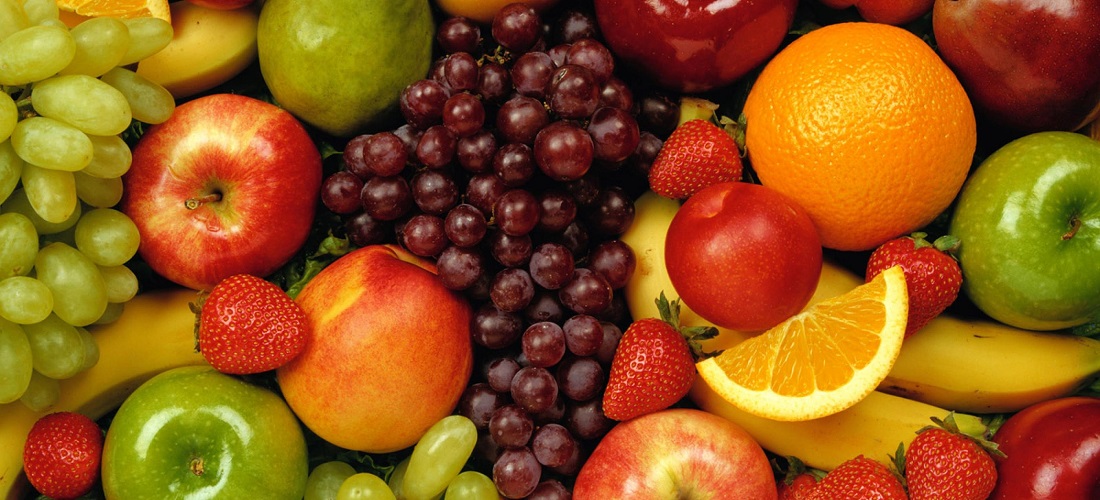
Logistics Bottlenecks Hinder Brazil’s Fruit Export Growth
Apr, 03, 2025 Posted by Sylvia SchandertWeek 202514
Brazil is the world’s third-largest fruit producer but ranks only 24th in exports, which account for just 2-2.5% of production. Exports generate around $1.3 billion annually, and about 1 million tons of fruit are shipped. However, logistics remain the primary obstacle preventing Brazilian fruits from expanding in global markets.
“The country is now paying the price for its precarious logistics infrastructure,” says Jorge de Souza, technical manager at the Brazilian Fruit Association (Abrafrutas). “We need better roads, ports, and maritime routes, especially to reach distant markets like Asia, the fastest-growing market globally.”
Unlike other products like meat, fresh fruit must be transported refrigerated but not frozen at temperatures above zero degrees Celsius.
Letícia Fonseca, technical advisor for fruits and vegetables at Brazil’s Agriculture and Livestock Confederation (CNA), notes that many countries perceive Brazil as lacking logistical efficiency for fruit exports. Issues such as incompatible shipping times for perishable products, refrigeration challenges, and the need for air or sea transport make it difficult for producers to access foreign markets.
“This is why forming cooperatives and associations is so important,” Fonseca says, explaining that these groups help manage return freight and diversify exported products.
See below a comparison of Brazilian fruit exports in January and February over the past five years. The data is from DataLiner:
Brazilian Fruit Exports – Jan-Feb 2020 to Jan-Feb 2025 – TEU
Source: DataLiner (click here to request a demo)
Exporters Cite Logistics as the Main Challenge
Companies that import and export Brazilian products echo this challenge. Joaquin Rey, CEO of Spanish company Kibi, which exports kiwis to Brazil and imports Brazilian fruits such as melons, papayas, and limes, calls logistics the biggest hurdle.
“Whenever maritime transport is involved, problems can arise—from port congestion to weather delays that impact delivery times and fruit quality,” Rey explains. In his experience, transportation beyond Brazil’s major urban centers is inefficient and slow, posing risks for fruit exports.
Patrick Berquó, a sales and business development analyst at MBR Company, which exports both year-round and exotic fruits, says the company ships growing volumes of papayas, limes, and mangoes weekly. He said this has helped increase international consumer awareness of Brazilian fruit production.
Producer Mentality Must Shift
Another factor limiting export growth is Brazilian fruit growers’ mindsets. According to CNA’s Fonseca, producers must shift their focus toward foreign markets. While Brazil’s domestic market offers strong demand and good returns, it is also more volatile due to seasonality and climate conditions.
Fonseca argues that seeking export markets can provide more excellent stability. “The international market offers more consistent commercialization. Trade agreements are usually more stable and professional than local sales, which often depend on intermediaries and daily price fluctuations.”
Souza believes Brazilian growers need to develop a more entrepreneurial approach to expand exports and achieve scale. “We need to work on changing producers’ perceptions. Exporting isn’t as complicated as they might think. They’ll need to adopt certain practices, but it’s entirely feasible,” he says.
“As you become more competitive internationally, you also improve the quality of domestic products. It’s a virtuous cycle,” Souza adds.
Brazil’s Unique Fruit Potential
Fonseca highlights Brazil’s potential to export its unique “Brazilian jabuticabas”—native fruits considered exotic in foreign markets. “We have traditional fruits but are also gaining ground with exotic varieties, a global trend. Even fruits that were once foreign to us, like dragon fruit and blueberries, are now part of Brazilian production and export efforts.”
Fruit exports have grown due to greater diversity and year-round availability, which was impossible a few years ago.
However, to expand exports further, Brazil must diversify its fruit production and access new markets. More than 50% of Brazilian fruit exports go to Europe, creating both opportunities and risks due to dependency. Despite some growth in Asia, China is increasingly striving for agricultural self-sufficiency.
Fonseca also notes a decline in exports to countries like Thailand, which were once major buyers, suggesting a need to recover these markets.
Moreover, Brazil is under increasing pressure to demonstrate sustainable production practices. “We need to show that we are conserving resources and investing in biodegradable packaging throughout the logistics chain,” she says.
The EU-Mercosur trade agreement could provide new opportunities, particularly by eliminating tariffs on certain fruits. “We need to assess how Brazil can stay competitive, as we won’t be the only country benefiting from zero tariffs in the European market.”
Despite global geopolitical challenges and tense trade negotiations, Souza remains optimistic. “We have high-quality products, and the world still needs healthy food,” he concludes.
Fruit Attraction Brazil Expands in Second Edition
Now in its second edition in Brazil, the Fruit Attraction trade show has doubled since 2024, occupying two pavilions at the São Paulo Expo. This year’s event attracted 46 international buyers from all continents—14 more than in its debut edition. Organizers expect business deals to follow the same upward trend.
The Brazilian edition was held in Madrid for 15 years, marking the event’s first international expansion. Sandra Comesana, coordinator of business rounds for Ifema Madrid, says bringing the fair to Brazil was a strategic decision year in the making.
Source: Globo Rural
-
Other Cargo
Nov, 03, 2021
0
Russia considers limiting fertilizer sales despite lack of energy crisis and dormant fields
-
Meat
Mar, 15, 2023
0
Pork exports reach 34,867 thousand t in March
-
Ports and Terminals
Jun, 17, 2021
0
Cattalini registers higher import volumes of heated oils
-
Ores
May, 27, 2024
0
Guinea replaces Brazil on the cape podium



